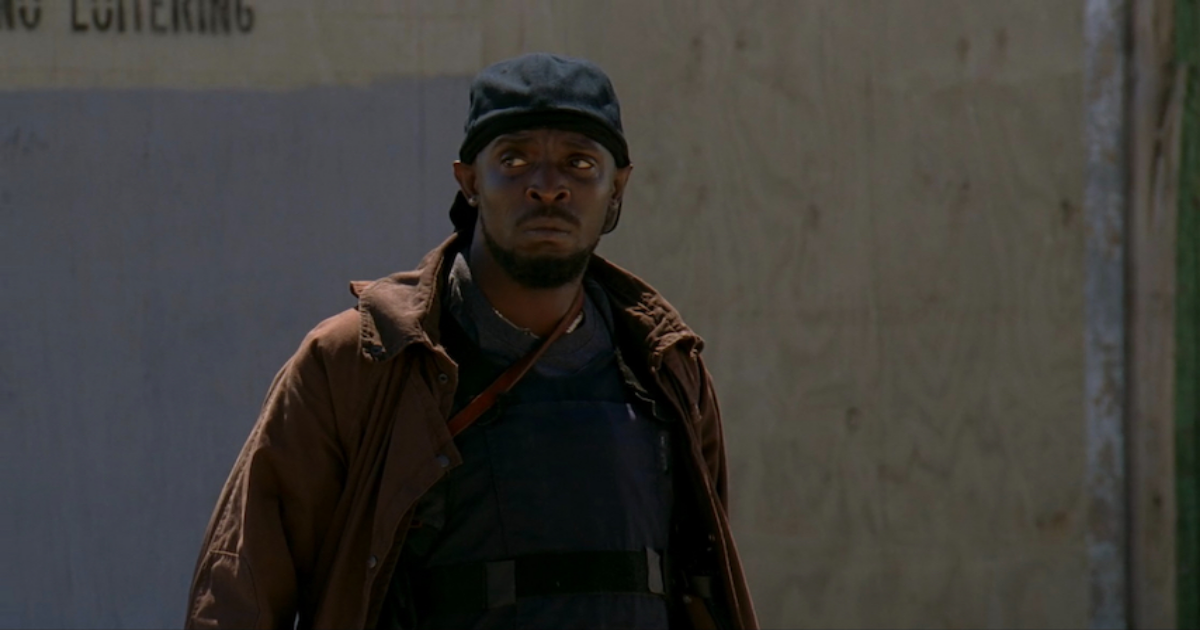[Editor’s note: This piece contains spoilers for The Last Of Us season two, episode two, “Through The Valley.”]
After some relatively tranquil table-setting in its season-two premiere, The Last Of Us dove headfirst into video-game action in “Through The Valley” this week with a bloody, fiery, snowy face-off between the citizens of Jackson and throngs of newly awakened infected that felt on par with a big Game Of Thrones battle. And then, of course, there’s that moment: This may be premature, but the death of Joel (Pedro Pascal, the star of this show) certainly feels like it has the weight of the great, big-character HBO deaths. It gave you a sick-in-the-stomach sensation like Adriana’s murder in The Sopranos and the Starks’ in GOT, and was simultaneously inevitable and surprising, not unlike Logan’s passing in Succession. “As soon as I put the script down, I was exponentially more terrified of delivering that moment than anything in the battle,” director Mark Mylod (who also helmed “Conor’s Wedding”) said of Joel’s demise in the post-credits look inside the episode. And he and writer Craig Mazin do deliver something memorable and thoughtfully staged, with much of Joel’s slow murder at the hands of Abby (Kaitlyn Dever) occurring off-screen, save for the final blow over repeated pleas from Ellie (Bella Ramsey).
But if you’re going to talk about tough-to-shake ends to beloved HBO characters, you have to talk about Omar. For five seasons of The Wire, the character (portrayed the late, great Michael K. Williams) was a bunch of fascinating seeming contradictions: an essential part of the game who wasn’t actually a player in it, a Robin Hood-type figure with a code whose violence was glorified by kids (including the one who’d go on to pull the trigger on him), a very funny man who was also terrifying, and the best character in an ultra-realistic series who was mythic. At one point in the final season, he essentially became Batman, jumping off a balcony in the midst of an epic shootout and somehow surviving. He was an enigma both in the show’s world and outside of it. During a talk with David Simon in New York in the early 2010s, he said something to the effect of—I’m paraphrasing, as my memory is a bit foggy—that a few people want to hear his opinions on systematic failures in American cities, but most of them just want to hear about Omar.
When Omar is finally offed in “Clarifications,” it’s not at the behest of drug kingpin Marlo (Jamie Hector), who put a price on his head and was always—save for Omar—able to squash any person that got in his way, no matter how slight or insignificant the offense. He was killed by Kenard (Thuliso Dingwall), a kid, just after ordering a soft pack of Newports in a bodega. The woman at the counter screams from behind bulletproof glass, the young man’s eyes go big with a mix of shock and awe while holding the gun, and the most interesting character on the show is gone, just like that, without any dramatic tension or buildup—and pretty early on in the episode too.
What’s important here is that the fallout of his death mostly feels like a shrug. “Ain’t know the name; don’t even know if there was a why,” Marlo says to Snoop (Felicia Pearson) when she presses him on who finally got Omar. When Bunk (Wendell Pierce) enters the crime scene, one of the detectives (played by Ed Norris) tells him he thought he’d want to see “the mope,” as if his downfall is just some casual amusement. And in the very last scene of the episode, Omar is shown misidentified at the morgue, surrounded by more meaningless dead meat.
In the recap podcast The Wire: Way Down In The Hole, co-host Van Lathan called it “the signature death” of the show, arguing that Stringer’s (Idris Elba) shooting felt more important, dramatic, and “had a lot more monumental developments” but that Omar’s got at the heart of what the series was really about. And it’s tough to argue with that. The killing of Omar, more than any other in The Wire, feels most in-tune with its series’ worldview: It’s just another death where, to quote Marlo again, you “don’t even know if there was a why” or care enough to find out.
A lot of “Clarifications” is about legacy—whether all of that struggle was worth it, whether what these characters did in the aughts in this city will have any sort of lasting effect, whether (to bring it back to Omar) a beat-up titan in Baltimore finally falling once and for all will cause any collateral damage and aftershocks or change the game. And The Wire is pretty clear about what it thinks of that. Just before that final scene of the medical examiner noticing the name mix-up over Omar’s corpse, Beadie (Amy Ryan) lays it all out for McNulty (Dominic West): “All the guys at the bar, Jimmy, all the girls: They don’t show up at your wake. Not because they don’t like you, but because they never knew your last name. A month later someone tells them, ‘Oh, Jimmy died.’ ‘Jimmy who?’ ‘Jimmy the cop.’ ‘Oh,’ they say. ‘Him.’”
